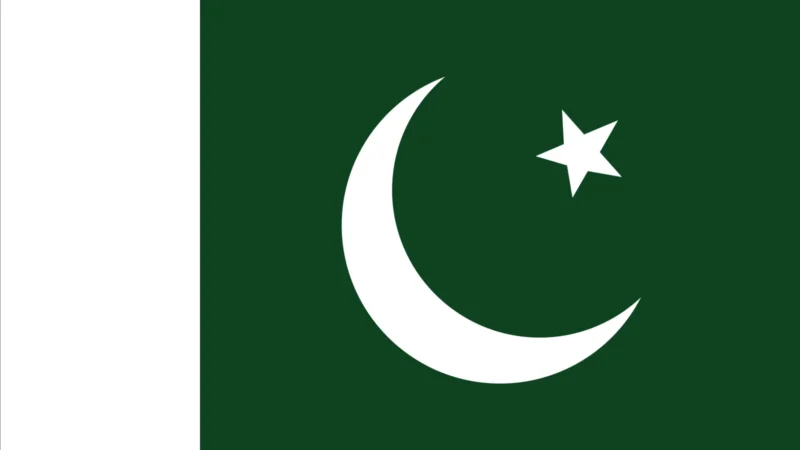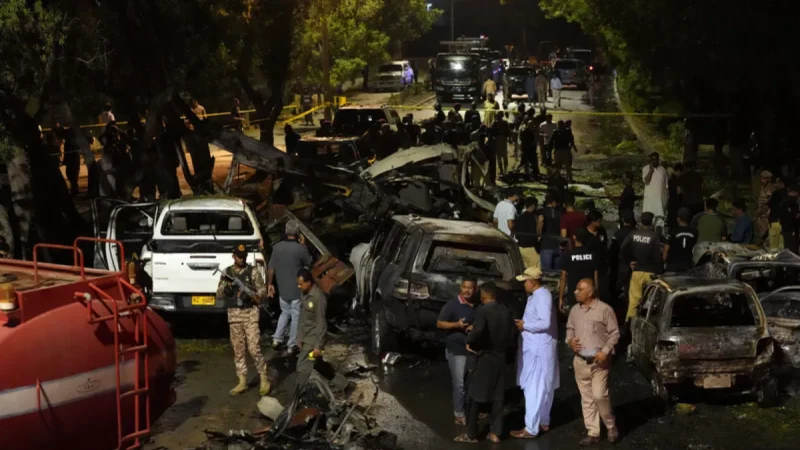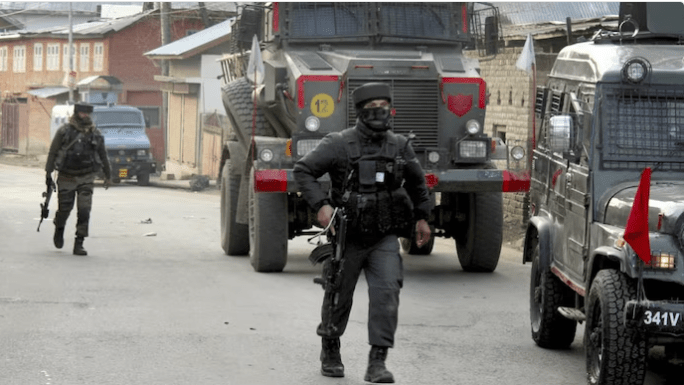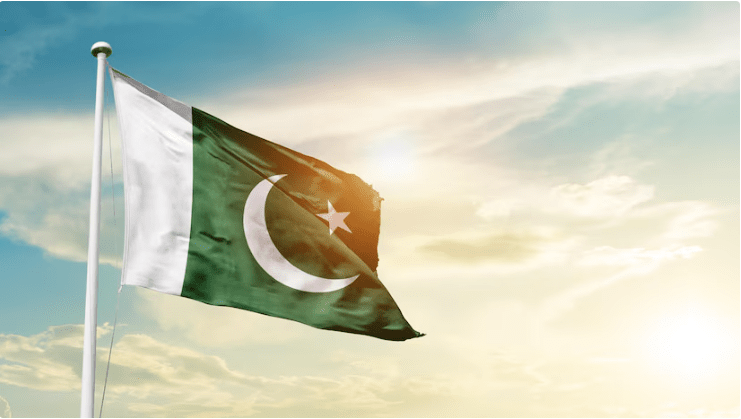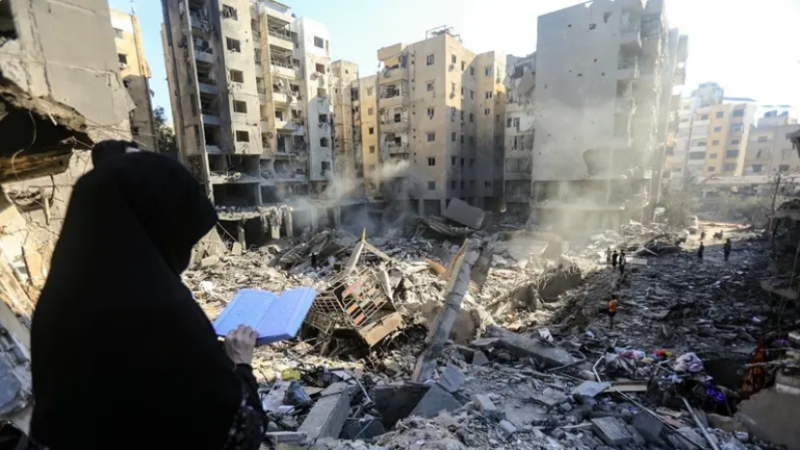As tensions rise, Pakistani rockets launch a retaliatory bombing attack on Iran.
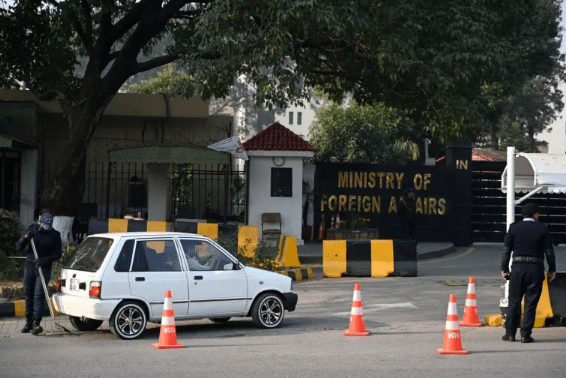
Pakistan has hit Iran with what it described as “highly coordinated” military strikes, a little more than 24 hours after Iranian air raids in Balochistan, further raising tensions between the neighbours and sparking fears of a broader conflict.
On Thursday morning, according to a statement from its Ministry of Foreign Affairs, Pakistan conducted what it called an “intelligence-based operation” against hideouts of armed groups in the Sistan-Baluchestan province of Iran.
Iranian state television said at least nine people were killed in the attacks. Iran’s Ministry of Foreign Affairs summoned the senior-most Pakistani diplomat in Tehran to “offer explanations” for the attacks.
Pakistan said its attack was based on “credible intelligence” of “impending large scale terrorist activities” from across the border. The operation was codenamed “Marg Bar Sarmachar” (Death to Sarmachar).
“Over the last several years, in our engagements with Iran, Pakistan has consistently shared its serious concerns about the safe havens and sanctuaries enjoyed by Pakistani origin terrorists calling themselves ‘Sarmachars’ on the ungoverned spaces inside Iran. Pakistan also shared multiple dossiers with concrete evidence of the presence and activities of these terrorists,” the ministry said in its statement.
“However, because of lack of action on our serious concerns, these so-called Sarmachars continued to spill the blood of innocent Pakistanis with impunity,” it said. “This action [Pakistan’s missile strike] is a manifestation of Pakistan’s unflinching resolve to protect and defend its national security against all threats.”
“Pakistan fully respects the sovereignty and territorial integrity of the Islamic Republic of Iran. The sole objective of today’s act was in pursuit of Pakistan’s own security and national interest which is paramount and cannot be compromised,” the statement added.
Pakistan had earlier recalled its envoy from Tehran in a series of moves to show its displeasure over the Iranian attack. It also said it would bar Iran’s ambassador to Islamabad – who is currently out of Pakistan – from returning to the mission.
Pakistan’s interim Prime Minister Anwaar-ul-Haq Kakar met Iran’s Foreign Minister Hossein Amirabdollahian in Switzerland on the sidelines of the World Economic Forum in Davos on Tuesday, hours before Iran’s attack.
However, on Wednesday, Amirabdollahian said the attack on “Pakistan’s soil” was in response to the group’s recent attacks on the Iranian city of Rask in the southeastern province of Sistan-Baluchestan.
Emphasising that while Iran respected the sovereignty and territorial integrity of Pakistan, he said the country would make no compromises on its own security.
“The group has taken shelter in some parts of Pakistan’s Balochistan province. We have talked with Pakistani officials several times on this matter,” he added.
Global reactions
China, a close ally of both Pakistan and Iran, said it was willing to mediate between the two countries after the military actions.
“The Chinese side sincerely hopes that the two sides can exercise calm and restraint and avoid an escalation of tension,” Ministry of Foreign Affairs spokeswoman Mao Ning told a news conference on Thursday.
“We are also willing to play a constructive role in de-escalating the situation if both sides so wish,” she said.
Iran and Pakistan are members of the Shanghai Cooperation Organisation. They also engaged closely with each other when a China-led mediation helped Iran and Saudi Arabia broker a deal to restore relations in March 2023.
Mao said Iran and Pakistan were “friendly countries to China and countries with important influence”.
The United States also condemned the Iranian air raids on Pakistan.
“We have seen Iran violate the sovereign borders of three of its neighbours in just the past couple of days,” Matthew Miller, spokesperson for the Department of State said during a news briefing on Wednesday, referring to the recent Iranian attacks in Syria and Iraq.
Separately, India, Pakistan’s archrival on its eastern border and traditionally considered a close ally of Iran, said it was “a matter between Iran and Pakistan”.
“Insofar as India is concerned, we have an uncompromising position of zero tolerance towards terrorism. We understand actions that countries take in their self-defense,” India’s Ministry of External Affairs said in a statement on Wednesday.
United Nations chief Antonio Guterres was “deeply concerned” about the military exchange, his spokesman said.
“He urges both countries to exercise maximum restraint to avoid a further escalation of tensions,” Guterres’s spokesman Stephane Dujarric said in a statement.
‘Makes no strategic sense’
Baqir Sajjad Syed, a Pakistan fellow at the US-based Wilson Center, expressed his scepticism over the Pakistani response cooling off tensions with Iran.
“I doubt this will end with Pakistan’s retaliation. The mistrust that earlier prevented action against armed groups on both sides of the border would grow as a result of which I foresee resurgence of militancy in both the Balochistans – the Iranian as well as Pakistani,” he told Al Jazeera.
Considering Pakistan’s already fraught relations with Afghanistan on its western border and India on the east, and a deteriorating internal security situation, Syed said Pakistan may prefer matters to be resolved diplomatically.
“Pakistan was hard-pressed into responding this time because of the nature of strikes, internal political dynamics, and the perception that its deterrence had broken down. But Islamabad would like a quick de-escalation because if the situation is allowed to linger on, it has the potential of dragging Pakistan into a larger two-front conflict,” he said.
Pakistani security analyst Ejaz Haider told Al Jazeera it was “unfortunate that Iran treated Pakistan like Iraq or Syria”.
“A joint counterterrorism cooperation would have been the best way forward,” he said. “Pakistan had no option but to strike the terror groups and their infrastructure.”
Haider said Iran is already on a “razor’s edge” as Israel’s war on Gaza has involved its regional proxies, the Hezbollah in Lebanon and the Houthis in Yemen.
“For it [Iran] to open a front in the east with Pakistan makes no logical, strategic sense,” he said.

